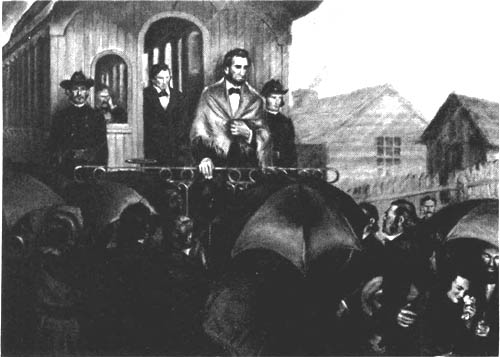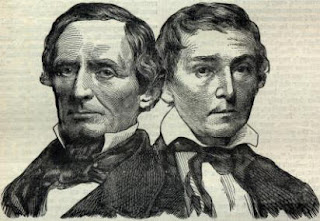North Carolina voters in a referendum split on the question of calling a secession convention. Out of over 93,000 votes cast statewide, the proposal is voted down by merely 194 votes. The vote totals: Union- 46,603 to Secession- 46,409./1861
North Carolina Capitol at Raleigh, 1861
- In Montgomery, the Confederate government begins debate on a draft of the Permanent Constitution/1861
- Confederate Congress authorizes $50,000,000 in the form of 8% bonds/1861
- Missouri opens a state convention to consider secession./1861
- In Washington, Congressman Elbridge G. Spaulding (N.Y.), capitalist, gives a private dinner at the National Hotel in honor of President-elect Lincoln and Vice President-elect Hamlin; General-in-Chief of the Army Winfield Scott is present, along with some Republican leaders depressed by the prospect of losing Southern business. In a remark that is as telling of Lincoln’s attitude toward the South as it is humorous, the evening was enlivened by his comment on a news item about a Georgian's oath to wear no clothes produced under the coming Republican regime. Lincoln quipped that he would like to see some Georgia gentlemen clad in the costume produced in their state—a shirt collar and a pair of spurs./1861
- [SIEGE OF FORT SUMTER] At Fort Sumter in Charleston Harbor, South Carolina, Major Robert Anderson stays in constant communication with Washington as the incoming Lincoln Administration awaits its opportunity to take control of the military situation and put the Southerners in their place. Meanwhile, the newly independent Southern states have a growing desire to establish clearly their independence. Americans in the North trust the new Administration will bring peace for the sake of business and federal tax revenues while those in the South increasingly expect a collision./1861




























